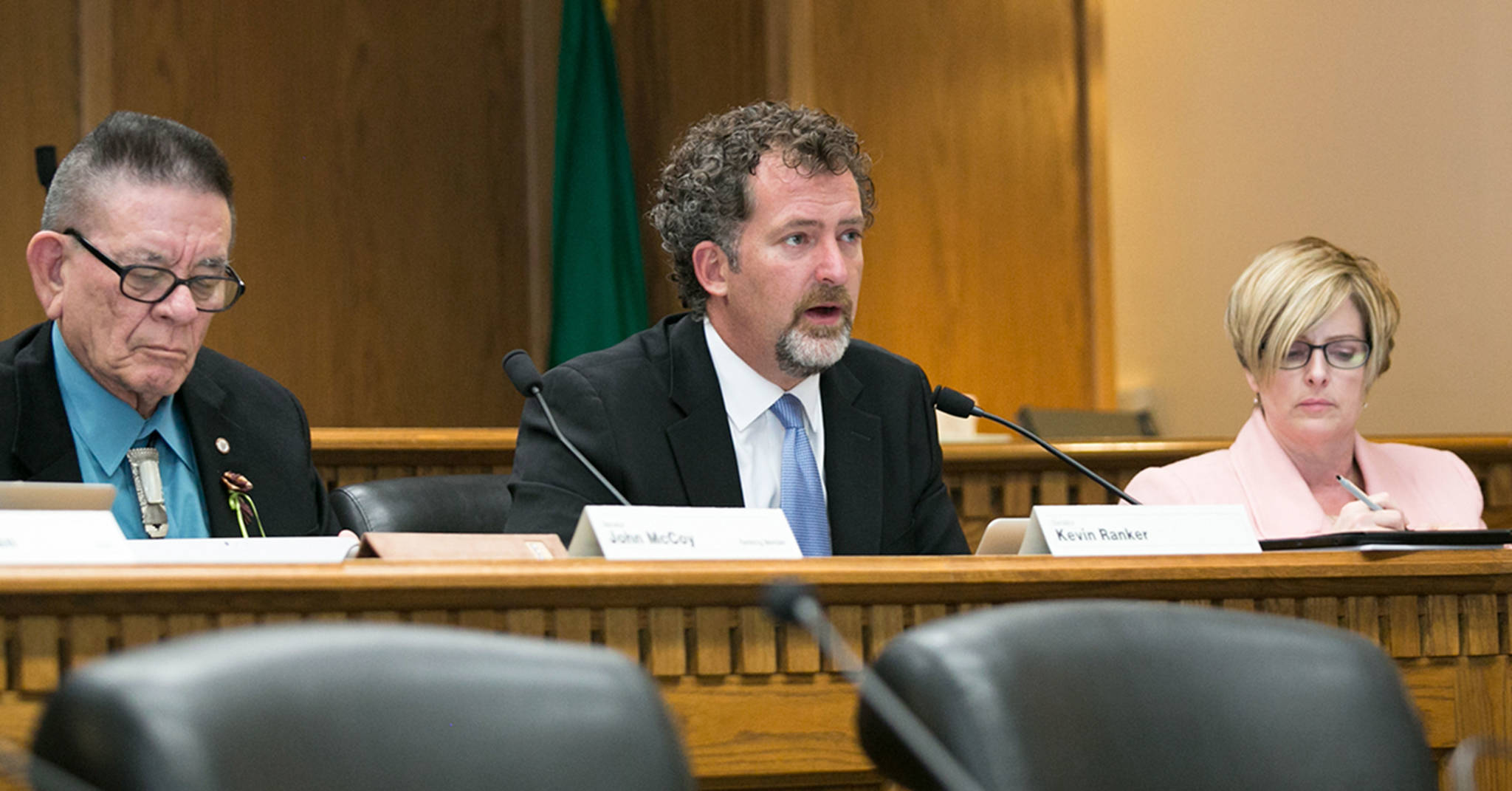An independent investigation into allegations of sexual harassment by former Sen. Kevin Ranker, D-Orcas, has concluded that he violated the Senate’s policies against harassment.
“… Based on the information obtained in this investigation, a preponderance of the evidence supports the conclusions that … [Ranker] violated the Senate’s 2010 policy prohibiting harassment and discrimination based on gender … [and that Ranker] violated the Senate’s applicable policies prohibiting harassment generally,” according to the report released on Feb. 1.
The 10-page report was written by Tara Parker of Ogden, Murphy, Wallace Attorneys of Seattle.
Ranker resigned from the Senate on Jan. 11 citing his father was recently diagnosed with cancer and he needs to focus on family.
A Senate committee adopted a revised set of workplace policies regarding sexual harassment and discrimination in July 2018 in response to the #MeToo movement. Senate chose to have an independent third party investigator conduct the process.
In a letter sent to regional news agencies by Ranker the day the report was released, he admitted he had been inappropriate with the complainant, state employee Ann Larson, who is currently director of government relations for the department of enterprise services. You can read the letter here.
On Oct. 8, 2018, Larson told two people in Gov. Jay Inslee’s administration that she was considering talking to a journalist about Ranker’s misconduct, the report said. Her allegations stemmed back to 2008, while she worked as a clerk for the San Juan County Council and Ranker was a county councilman (then called a commissioner). She said the harassment continued while she worked for him as Senator in 2010 and then from 2011-2015 when she was an employee of another state agency.
Larson said that while she had previously had a consensual sexual relationship with Ranker, once she started to work in his Senate district office in 2009 she wanted only a professional one. After she rejected his advances, she said he became hostile and she eventually left the position, according to the report.
“It does not matter that I am passionate about the issues I work on. What matters is that I recognize the impacts of my actions,” Ranker wrote in the Feb. 1 letter. “I have always tried to be respectful of the people around me when I advocate for important issues. I have not always succeeded.”
The report concluded that Ranker continued to conduct himself in a sexual nature toward Larson after ending the relationship they previously had.
“Did I treat her in a way that was different than others as a result of our previous relationship? Likely yes. But that does not make my actions acceptable,” Ranker wrote. “While in the position of power as a boss, one must consider the formality of the workplace; all employees should feel supported and successful in their job.”
The report stated that Ranker had not, however, attempted to use his authority to “influence retribution” against Larson as she had claimed. Larson said that Ranker had spoken negatively of her skills and qualifications to her coworkers, yelled at her and criticized her, threatened to eliminate her job and refused to meet with her about work-related subjects.
“However, the information obtained in this investigation does support a finding that [Ranker] engaged in behavior that had the purpose and effect of interfering with [Larson]’s work performance and creating a hostile, intimidating or offensive work environment with respect to [Larson]’s official efforts to advance the interests of the agency she worked for,” the report said.
Members of the San Juan County Council, the Skagit County Board of Commissioners and the Whatcom County Council will meet to select a person to fill Ranker’s vacancy on Feb. 5. The four candidates the councils will choose from were selected by the local Democratic Precinct Committee.
“We must own and understand the impacts of our behavior and the very real fact that our current system supports it,” Ranker wrote in the letter. “And, importantly, we must recognize that looking the other way for lesser actions creates a society that can be pathetically accepting of the worst offenders. Otherwise, there will be no real progress.”



